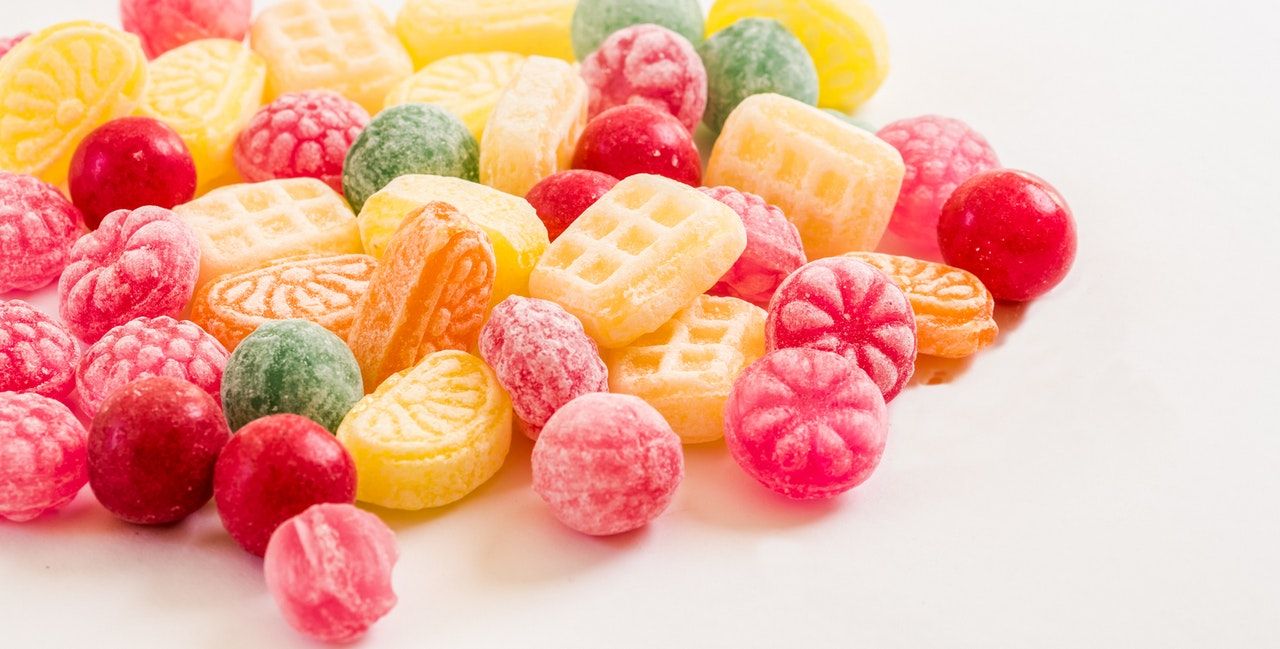Fat used to be the bad guy. It was because of our fatty diet that we had to fight more and more diseases and obesity in society. That's why a huge wave was unleashed with the 'low-fat diet' mantra.
But, have you noticed? Fat has been rehabilitated! Fat is no longer harmful, fat is actually healthy. We hear it everywhere: Eat coconut oil, butter, olive oil and fatty meat.
So if our obesity problem is not due to fat, what is it due to? Sugar.
Are you thinking now? Yeah, ok, today this, tomorrow that. Today everyone says sugar is bad, tomorrow they'll find something new?
Unfortunately, it's a bit like that in nutrition, new things are constantly being praised and then demonized again. One person says milk is great, another says it's totally unhealthy. But I think this is partly due to the fact that the "weight loss" sector in particular is an economic sector worth millions, in which many people want to make money and like to spread new rumors and sensational reports. And on the other hand, many "consumers" of nutrition news are happy to jump on every new trend so that they can switch from their half-hearted and unsuccessful strategy to the next one and prove that they are making every effort. But:
Calling sugar dangerous is not a trend

It's a return to logic, if you ask me. The human metabolism is not made for the amount of sugar and carbohydrates we put it through. Our muscle cell has five inputs for fat and only one for sugar! This already shows that we are actually a fat-burning machine, not a sugar-burning machine.
And I have already written and spoken about the fact that counting calories doesn't work.
Addictive sugar
People keep writing to me saying that they simply can't stop eating less sweet things. Even though they know that sugar is not good for them.
Because sugar is similar to nicotine and alcohol: we ignore our guilty conscience and misinterpret the signs that our body gives us, or don't interpret them at all. Tired, irritable, unfocused, bloated, constantly sick... It's all normal or simply due to stress, worries or a poor immune system.
We simply trust in our luck that nothing will happen to us, that we won't get sick or sabotage our body just because of "that little bit" of sugar.
And one reason for this ignorance is certainly that sugar is addictive.
out of the trap with the sugar diet
But now the question is: what can you do if you want to eat less sugar?
One way to get out of this
trap
is to understand the negative consequences of sugar consumption. What does it cost you if you continue to eat too much sugar?Then it is important to understand the physical Know the reason for recurring cravings. This is where knowledge about carbohydrates and their influence on sugar levels comes into play.
But reason alone is usually not enough in this case. There is another level of sugar consumption. The emotional level.
Ask yourself: what does sugar give you? What do you expect when you eat something sweet? Comfort, security, reward, distraction? As soon as you know what emotion you are actually looking for, i.e. what is behind the desire for sweets, then you can think about it: How can I get the desired emotion without eating or drinking anything?
And that's where it gets really exciting! Write down all the answers you can think of. And the next time you feel a craving for something sweet, ask yourself immediately: what am I really craving?
Don't underestimate this exercise and just be vigilant over the next few days and observe yourself. So that you can get to the bottom of things, but also so that you can steer yourself in a different direction!
5 tips for your sugar diet
1) Use spices such as cinnamon or vanilla for desserts or in coffee/tea, they give the impression of sweetness.
2) Nuts, for example in the form of almond butter, coconut milk or gluten-free muesli, taste slightly sweet and help you to satisfy your craving for sweet things without sugar.
3.) Use sweet root vegetables or sweet potatoes, as these already taste sweet (especially if they are baked in the oven ). This may well mean that your sweet tooth is already satisfied with the main meal and you don't "need" anything sweet afterwards.
4.) Season your food in an interesting way so that you are satisfied after the meal and don't need a taste kick in the form of sweets. Spices can also help you lose weight.
.) Use a fruit for a dessert, then you don't need any extra sugar, like in this chia-mango pudding, for example.
I'm curious to see if you try it out and what your experiences are!
Even easier to implement: 21-day detox and intermittent fasting program
Do you need specific recipes and help to implement the whole thing? Then I really recommend our 21-day detox and intermittent fasting program from my own experience and from the bottom of my heart.
You will receive specific instructions with menu suggestions, recipes and accompanying measures that will make it easier for you to get away from sugar and change your diet to a gut-friendly and anti-inflammatory one!
Now, of course, I'm interested: what have you already done (successfully or less successfully) to eat less sweets?

















